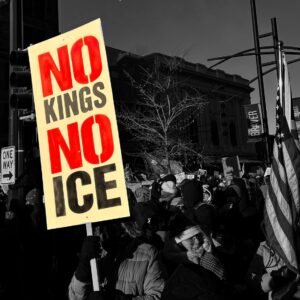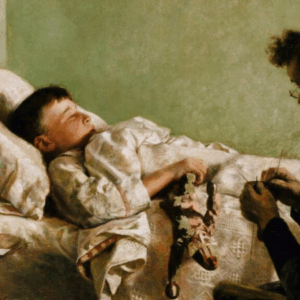
Freedom Means Can Rather Than Should: What the Harper's Open Letter
Gets Wrong
Gabrielle Bellot on How It Feels To Have Your
Existence Up For Debate
The first time I read a thinkpiece in a major newspaper that asked whether or not trans women were really women, I felt like I was caught in a maelstrom. I had only recently come out as trans, a decision that had cost me any realistic chance of returning to the small, religiously conservative island I had grown up on, and the piece felt almost like a personal affront, though it was presented as a necessary inquiry.
At moments, I was in high dudgeon, furious that someone would posit, in so well-known a media outlet, that people like me were essentially frauds who wished to sneak into women’s bathrooms and showers, or delusional people who were really just flamboyant gay men. I felt slapped in the face by the idea, posed in the piece, that transgender adults were often the product of children “forced” to go on hormones and transition at a young age if they showed any signs of gender nonconformity, a reality wholly alien to my own, as I had been beaten with a belt as a child if I dared show such nonconformity, yet my core sense of my self as a girl never faded, and, at any rate, prepubescent children are never actually put on puberty blockers or hormone replacement therapy.
Most of all, though, I was scared at and hurt by the idea that people I knew might read the piece and decide, even with its flawed philippics, that I, who had given up so much to transition, was really just a dangerous, delusional charlatan.
A better, more inclusive version of Harper’s letter would make explicit not only who it includes, but would make clearer its comprehension of a simple, inescapable point: that freedom means can rather than should.
It didn’t matter that the piece’s arguments were poor attempts to fearmonger at worst and a failure to understand what it means to be trans at best; what I hated the most was feeling like a fundamental part of who I was had been put, in a sense, on an operating table and was being publicly torn apart. The piece had never presumed that trans women might be its audience, had never imagined the subjectivity of its subject, had never wondered how it feels to have people not simply casually debate your very existence but demand that you prove their presuppositions wrong.
Facts over feelings, I was told, a risible phrase that presumed both that the thinkpieces were based in fact—which they rarely were, for the science of gender identity actually suggested otherwise—and that also seemed to presume that emotions were negative, lesser responses, a supposition all too frequently lobbed at women (under the umbrella of “hysterics”) who dared to show rage. There was something that disturbingly reminded me of clinical psychopathy in this oft-trumpeted idea, as if being cold, detached, and emotionless was somehow good, a product of the toxic tradition of men—for this image was most frequently applied to men—being asked to hide their emotions.
Soon, I became accustomed to such thinkpieces, which never seemed to truly grapple with what it must feel like to be transgender—pieces that failed, like simplistic novels, to put oneself in the shoes of someone wholly different. Ironically, I loved debates, but calmly discussing my very right to exist felt icy and isolating. The philosopher Thomas Nagel famously asked in a 1974 essay entitled “What Is It Like to Be a Bat?” that very question, trying to put himself into an ontological, experiential position deeply dissimilar to his own. I found myself wishing that some of these anti-trans screeds, which were often defended as simply people “asking questions,” would take the time to truly imagine what it might be like to be someone so different from themselves, rather than treating people like me as clinical subjects to be unempathetically, dehumanizingly dissected in the name of free speech.
I find myself wondering similar things in the wake of the publication of a recent letter in Harper’s. The letter, which was signed by a variety of writers and critics that included Margaret Atwood, Jesse Singal, and JK Rowling, argues that we should be as free in our imaginations as we are in our discourse. However, the letter proclaims in despair, our minds and mouths alike are being shut, not by political conservatives, but by a cabal of the left that is tactically indistinguishable from the right. “The free exchange of information and ideas, the lifeblood of a liberal society, is daily becoming more constricted,” the piece declares early on. “While we have come to expect this on the radical right, censoriousness is also spreading more widely in our culture: an intolerance of opposing views, a vogue for public shaming and ostracism, and the tendency to dissolve complex policy issues in a blinding moral certainty.”
I found myself in a strange place as I read through the short letter, which begins by vaguely applauding the recent protests around the world for racial justice, then quickly pivots into a familiar subject: the idea that the “woke,” progressive left is intolerant and illiberal in its tendency to call out problematic things. By the time I got to the end, I felt at once flustered and unsurprised, as much because of what was in the piece as because of what had been left out. If parts of the letter seemed sensible in the abstract, like defending free speech, there were gaping polemical holes elsewhere. The largest issue seemed clear to me, in part because I was accustomed to it: that the letter, at core, was at once a theoretical defense of intellectual freedom and a carefully veiled invitation to use dehumanizing rhetoric under the bastion of “the free exchange of ideas.”
The problems started early. The letter’s invocation of the worldwide protests for racial justice almost seemed tacked on as a slapdash shield, a quick way to defend against accusations that it is a subtle screed defending the rights of people to say nakedly racist things. Yet this brief mention is tellingly the only substantive appearance of race in the letter; it is there much like hackneyed messages from corporations about standing with black people are there, which is to say it is there less as an authentic message than as a way to say, I mentioned the protests positively, so I can’t be racist. The brevity of the mention is unsurprising; the protests for racial justice are merely a convenient bridge to the letter’s arguments about being silenced by the “intolerant” left, a group that presumably includes many of those very protestors.
Ironically, as the letter’s spearhead, Thomas Chatterton Williams, told the New York Times, it was a series of events involving race that had served as the impetus for the letter in the first place: the exodus of half of the National Book Critics Circle’s board members after a controversy that stemmed from a desire to condemn white supremacy in the world of books; a similar controversy at the Poetry Foundation; and a data analyst, David Shor, being fired after suggesting on Twitter that violence during protests had led to Nixon’s 1968 election and that, as a result, recent acts of violence during protests could tip the scales, too, towards Trump’s reelection. Remarkably, a letter tacitly forged out of incidents involving race has little to specifically say about race, doubtless in part because of Williams’s well-known desire to create a “post-racial” world where we cease to acknowledge each other’s ethnic and experiential differences.
The problem is that the letter, which is saliently vague, fails to consider the experiences of others, the experience of what it is like to see your very identity coldly dissected and suspected in the name of free speech.
Williams, who is half-black and half-white, doubtless partly desires this because of his own oft-stated discomfort with his blackness; it was he, after all, who described black fans of hip-hop in his first book, a 2010 memoir, as “psyching themselves up like child soldiers drunk off blood in some war-ravaged African province.” This is the kind of language that, had it been employed by a white critic describing jazz (a genre Williams ironically proclaims to enjoy) in the early 20th century, would have been both commonplace and nakedly racist, conjuring up a trope of Africa as a wild world that is meant to suggest not civilization or complexity, but war and savagery. Williams, whose entire career has been predicated on writing about race, wants as little to do with race as possible, explaining the letter’s feeble gesturing to the protests.
Still, race exists far more prominently than any other form of identity in the letter. Perhaps predictably, the letter never deigns to mentions queer people; indeed, a number of signatories on the letter have a history of specifically writing things that question, fearmonger about, or outright deny the authenticity of transgender people’s lives, from JK Rowling to Katie Herzog. This inescapably makes the letter feel peculiarly dissonant, at once advocating for intellectual freedom and yet being signed by people for whom that seemingly means the freedom to not simply question my right to exist, but to have such views published and fêted.
That there are queer and trans signatories on the letter, like Jennifer Finney Boylan (who disavowed the letter after it began attracting negative attention, claiming she did not know she would be in the company of problematic persons), means little to my larger point. What I find telling is what—and who—the letter decided to exclude. Racism is worth superficially gesturing to; queer lives, however, aren’t even worth mentioning in passing, despite the fact that protests in support of those very lives occurred concurrently with the protests against police brutality. If anything, mentioning trans people positively might have reduced signatures on the letter—JK Rowling would almost certainly not have signed it had it declared, as Stephen King did, that racism is bad and trans women are women. (One is easy to endorse; the other, by implication, is difficult.) Trans people are one of the implicit bêtes noires of the letter, for we are one of the very subjects some of the signatories would like the freedom to “explore” in debasing terms.
How could we be included, really, when the letter is tacitly about the freedom for people to ask whether or not freaks like me should be allowed to transition, should be allowed in the women’s restroom, should be allowed not to suffer the overwhelming pain of gender dysphoria? How could race be dealt with seriously in the letter, when one can only assume that one of the freedoms being requested is the freedom to ask, a la The Bell Curve, whether or not black people have lower IQs or whether or not black Americans are more prone to criminality than white Americans, or why we should consider believing women who claim to be the victims of assault years after they happened?
The protests for racial justice are merely a convenient bridge to the letter’s arguments about being silenced by the “intolerant” left, a group that presumably includes many of those very protestors.
The problem, then, is that the letter, which is saliently vague, fails to consider the experiences of others, the experience of what it is like to see your very identity coldly dissected and suspected in the name of free speech. Reading a tweet that reduces the rage-inducing horror of police brutality against unarmed black people to a political statistic—should we not react angrily and reign ourselves in because our rage at being murdered by cops will tip the election?—feels astoundingly tone-deaf. Perusing a thinkpiece that asks whether or not trans people should be allowed to transition feels nearly as callous to me as reading older colonial texts that asked—in the name of free discourse, of course—whether or not black Africans were fully human, for both begin with the presumption that something inherent in our identities is false or lacking, and such pieces never seem to imagine that we, the suspected-of-being-not-quite-right, may be the ones reading them.
But the letter’s true intended readers, perhaps, are conservatives, as the letter, which attacks conservatism, ironically seems partly designed to placate the very right-wingers who claim that the left has grown too strident in speaking up for the rights of minorities.
Here’s the rub: I’m positive that some of the signatories meant well, and I even agree with some of the broad strokes of the letter. I read all kinds of books, including “problematic” ones. I am no fan of permanently “cancelling” anybody, even if there are people it would take an almost unimaginable amount of time for me to personally forgive; I believe in calling out mistakes, and I also believe in giving people the chance to do better. (Of course, this is easier said than done; it hurts when the people we look up to fail us, and forgiving them can feel like a personal load to bear; and how does one “forgive,” say, Daniel Holtzclaw, the white cop who systematically sought out and raped over a dozen black women?)
And, at core, I believe in free expression. As Zadie Smith articulates with such beautiful nuance in “Fascinated to Presume: In Defense of Fiction,” I believe, too, that any writer, in theory, can write any kind of character, regardless of identity; I want writers of all kinds to care enough to create meaningful, memorable, complicated representations, rather than lazy caricatures, to care enough to consider the power dynamics involved in their authorial choices and to do abundant research to avoid crass stereotypy. I want a wide, wide vision of art, where we are free to do but not free of consequences for making poor, lazy choices. Having grown up in a world that felt deeply restrictive, I absolutely support the liberty to speak my mind.
But the fundamental problem implicit in the letter is confusing freedom of speech with the freedom to a platform or the freedom to act without consequences. I may support your right to say whatever you wish; that doesn’t mean that I support your right to say whatever you wish in a major publication (or that I myself am entitled to having my views aired anywhere, for that matter). I reserve the right to call you out for spewing rhetoric that unjustly maligns a particular sect of humanity. Having the freedom to say anything, in theory, does not mean that one should, in fact, be able to say anything in any publication or on any platform without ramifications.
I want to believe in a world where we can talk to each other about difficult topics, acknowledging that all of us—myself included—have a lot to learn about the complexity of the past and present.
The letter’s core line of argumentation is nothing new. Every few months, a public intellectual who claims to be a liberal—sometimes, like that buffoonish bugbear Dave Rubin, a “classical liberal”—will declare that a segment of the left is out to stifle all discourse and silence anyone who dares utter a word not in the bible of wokeness we all have inscribed on our hearts. Particularly when these aggrieved critics are white cishet men, it’s not uncommon for them to declare that it is they, not minorities, who are, in fact, under attack. A white man can’t say anything; the truly privileged folks, the argument goes, are people like me, who are brown or black or queer or disabled or any other configuration of minority group, as we are the ones who win all the prizes, get all the opportunities, live in luxury.
For so long, the default in European and American discourse has been to imagine that the speaker—and audience—are white, heterosexual, and cisgender, and more often than not male; when we speak out against this, saying that equality means truly elevating the voices of people outside of those “default” groups to make the playing field fairer, we are accused of demanding too much. How unsurprising that those who are accustomed to being in power react in horror and indignation to the ones they have so casually looked down upon—perhaps without even realizing it—even merely theoretically attaining the same degree of power.
I want to believe in a world where we can talk to each other about difficult topics, acknowledging that all of us—myself included—have a lot to learn about the complexity of the past and present. I don’t want kneejerk reactions or moblike mentalities on social media; I want nuance. I want to believe in a world where, if someone doesn’t understand what it means to be an identity different from their own, they can at least open up a conversation with someone who has this different identity, and, if that person feels inclined to share their experience, they can help show that uncertain person a bit of what it’s like to walk in someone else’s shoes.
But it’s difficult to hold these dispassionate discussions in a world where I feel scared when I see a police officer, and, when I say why, I am asked to “prove” that systemic racism exists, or where I am asked to “prove” that I have a right to use the women’s restroom. It is difficult when merely mentioning that white supremacy exists in publishing and that we can, in fact, do better leads to internecine schisms and uproar, because the assumption—subconscious or conscious—is still that we should be quiet and know our place, that we should not voice our volcanic rage as James Baldwin or Audre Lorde did. Keep our feelings in check, even as we feel dehumanized doing so.
The fact is that as the world grows and evolves, so, too, must our discourse—and the idea of “freedom” related to that discourse. When we truly accept different groups of people, seeing them as invested with full humanity as we are, it is difficult to ask questions that presume some innate charlatanism about that identity, and a more inclusive discourse is one that, while free in theory to ask anything, will consider the experiences of its subjects before crassly committing them to paper.
A better, more inclusive version of Harper’s letter would make explicit not only who it includes, but would make clearer its comprehension of a simple, inescapable point: that freedom means can rather than should. But I am accustomed to being the subject of something while being forgotten in the credits, a bizarre brown queer body that must explain itself to anthropologically curious white critics. I don’t know that that better letter will come or that it matters; all I know is that I won’t be silent or invisible again.
Gabrielle Bellot
Gabrielle Bellot is a staff writer for Literary Hub. Her work has appeared in The New York Times, The Atlantic, The New York Review of Books, The New Yorker, The Paris Review Daily, The Cut, Tin House, The Guardian, Guernica, The Normal School, The Poetry Foundation, Lambda Literary, and many other places. She is working on her first collection of essays and a novel.












